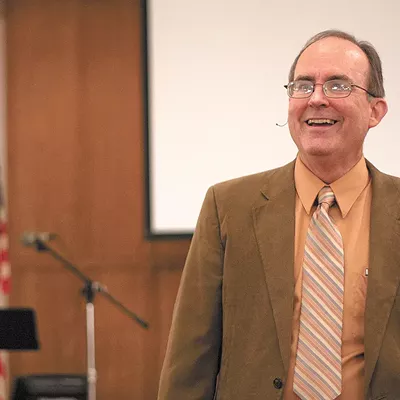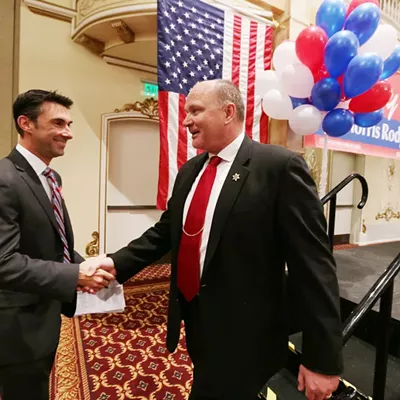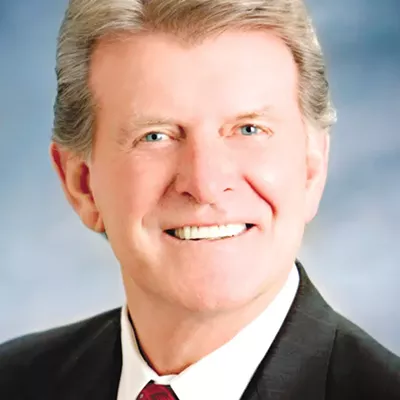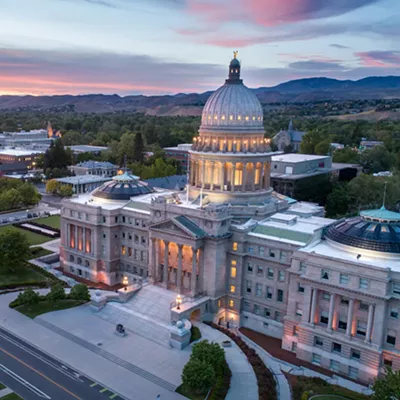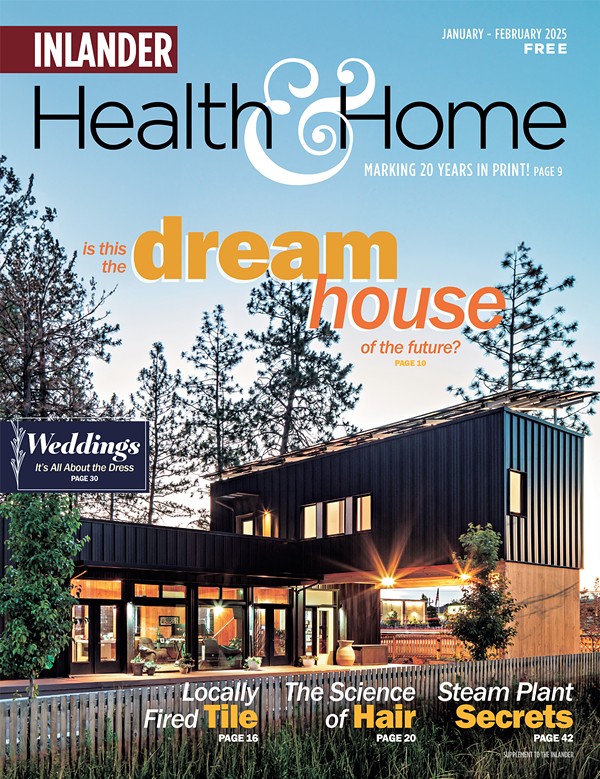State Rep. Marcus Riccelli faces a familiar challenger heading into the Aug. 5 primary: Tim Benn, a lifelong Spokanite and day-care owner, ran unsuccessfully against Riccelli in 2012. Also in the ring is Libertarian Randy McGlenn, a recently laid-off information technology worker, in the fight to represent Washington's 3rd Legislative District.
Both of Riccelli's opponents face strenuous odds against the well-funded incumbent. The 3rd District, stretching from the South Hill to the Northside and covering the heart of downtown Spokane, is among the poorest in the state and the only staunchly Democratic district east of the Cascades. In the 2012 election, Riccelli, a Democrat, beat Benn by 25 points.
In his first term, Riccelli passed a bill to improve transparency by making the capital and transportation budgets available online. He also passed legislation to reduce delay times for families waiting for newborn screening results. He touts his commitment to protecting "our most vulnerable" and saving social service programs from the budgetary chopping block.
"Two years ago, I promised to hit the ground running for this community, and I believe I've delivered on this promise," Riccelli says.
Benn is once again running to the right of Riccelli, but this time as an "Independent" Republican. His philosophy, he explains, is "people before party." After clashing with inspectors at the Department of Early Learning, Benn, who co-owns a home day-care service in North Spokane with his wife, advocated for a bill this year to limit the agency's regulatory power. He wants to reduce Olympia's "burdensome regulations" on small businesses like his own.
"I agree with the fiscal responsibility of the Republican Party, but I'm not a huge fan of top-down policies," Benn says. "I'm not diverging fully from the Republican Party, but I think we need to represent the people of our districts, and not be coerced to make special deals on either side of the aisle."
McGlenn, who grew up in Spokane Valley, also promises voters he'll maintain an "independent viewpoint" as a Libertarian. After losing his IT job at SKILS'KIN, a nonprofit serving people with disabilities, earlier this summer, McGlenn says he grew frustrated with Spokane's lack of good jobs and slow economic growth. If he heads to Olympia next year, he says he wants to pore through the state budget and identify wasteful programs in hopes of saving taxpayer dollars.
"[In] my experience as an IT person, we constantly have the mantra of doing more with less," McGlenn says. "I feel the government could use a good dose of that."
Riccelli has vastly outraised his opponents, with $78,500 so far in campaign contributions. His donors include Avista, Boeing, tribal governments and many health care-related companies and political action committees. Benn, by comparison, has raised $3,875 in private contributions from roughly two dozen people. McGlenn, who hasn't reported any contributions to the Public Disclosure Commission, says he's gotten about $2,000 from supporters and spent almost all of it. ♦
On the Issues
We asked the candidates about issues making headlines today. Here's a sampling of what they said.
Washington state faces a looming doctor shortage as more people become insured. What’s your plan for filling this growing need in our health care industry?
Marcus Riccelli (Democrat): We want to deliver more graduate medical education right here at the Riverpoint campus in Spokane. We need to grow that program. I think it’s fair to consider whether we need a medical school here in Spokane. … I think we should incentivize [medical students] through loan forgiveness.
Tim Benn (Independent Republican): We have to see where the greatest need is and focus dollars where they are most needed. … As far as Spokane is concerned, I think we have a great health care industry in Spokane.
Randy McGlenn (Libertarian): One of the issues I see is the overbearing government regulation on health care. I believe, and so do fellow libertarians, that a free market approach is going to be the best bet to ensure there is growth in the industry, and that doctors and practitioners are incentivized to be able to practice in the state.
The Legislature is obligated under the Supreme Court to fully fund education. How should lawmakers keep good on their promise to invest billions of dollars into education?
Riccelli (D): I think a good start is to close archaic, outdated tax loopholes that don't create any jobs. We tried to do that as House Democrats. We passed over a billion dollars of loophole closures. There’s no reason they should be on the books.
Benn (IR): Just about half of the money spent on education gets into the classroom. We have top-heavy administration and we have a lot of education dollars that are spent in areas that don't actually educate our children. … We need to address that before we ask these low-income residents in the 3rd District to pay more on their house payment and pay more in taxes.
McGlenn (L): I would do everything I can to fund education by eliminating programs and waste within government that truly isn't benefiting anybody, and I think we would see some cuts in some areas that people truly wouldn't notice or miss.
How should the Legislature fund a transportation package that would complete the long-awaited North-South Freeway?
Riccelli (D): We’re not going to get full funding unless there's bipartisan support here, and I’m willing to take some chances, too. … I’ll support a phased-in approach to a sales-tax capture to get us to I-90. I support revenue, and I did support revenue. We passed a transportation package and that included a gas tax. It’s regressive, but what was important to me was, when are we going to get the North Spokane Corridor done?
Benn (IR): We need to find savings. I know in Washington state, we spend almost double per mile of roadway than other states do. I think we need to find out why our roads are so much more expensive.
McGlenn (L): We’ve passed tax levies time and time again to fund this project. How many times are we going to fund this project over and over again? I think it’s time we start steering some dollars toward this project, get it done and make sure that dollars like the gas taxes we’ve already passed aren't getting put into the general fund, and they go specifically to the transportation fund.
Here at the Inlander, we have been reporting extensively on the cracks in our mental health system. What steps would you support to improve mental health care in our state?
Riccelli (D): I think we need more funding. I think we need more beds. I think we need more people trained to help people. We need to make sure that awareness is perpetuated in Olympia and our local communities. Our budget is a set of our values in our community and our state. Now we have to step up.
Benn (IR): I think that one of the things we can do is talk to our local police departments and sheriffs and see how funds are being used in our criminal justice system, basically criminalizing mental health, and divert those funds instead of wasting them in the criminal justice system.
McGlenn (L): I think it’s very important that we do provide funding for research and facilities to help people who suffer from mental illness. There are definitely some programs and information out there on new ways to treat people with mental health issues.





